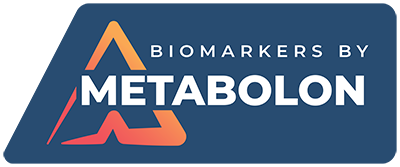Case Study

Institute for Systems Biology
Metabolon helps Institute for Systems Biology (ISB) decode the connection between gut microbiome and blood.

Dr. Sean M. Gibbons
Assistant Professor at ISB, Washington Research Foundation Distinguished Investigator
“Living in a microscopic world, cells communicate with each other by speaking in small molecules. We’re seeing a conversation happen between the microbiome and body, and metabolomics allows us to listen to the language spoken by the microbiome to the body.”

Dr. Sean M. Gibbons
Assistant Professor at ISB, Washington Research Foundation Distinguished Investigator
“Living in a microscopic world, cells communicate with each other by speaking in small molecules. We’re seeing a conversation happen between the microbiome and body, and metabolomics allows us to listen to the language spoken by the microbiome to the body.”
WATCH THE VIDEO
The Institute for Systems Biology (ISB) was founded in 2000 as the first-ever institute dedicated to systems biology. The Seattle-based nonprofit organization is committed to collaborative and cross-disciplinary biomedical research. Focusing on translational science, ISB is focused on generating scientific results that deliver real-world clinical impact. An affiliate of Providence St. Joseph Health, one of the nation’s largest not-for-profit healthcare systems, ISB has focused its research on pressing issues in human health like brain health, cancer, sepsis, and aging and many chronic and infectious diseases. The microbiome may play an important role in many of these conditions.
Metabolon and ISB have a long-lasting partnership investigating the basis behind personal health and wellbeing or disease via metabolomics. Many exciting findings have come out of this work spanning the cumulative effects of the environment, diet, and nutrition, as well as the microbiome and the contributions each has on human physiology.
Metabolomics was a key tool that ISB researchers used throughout their work to predict gut microbiome alpha-diversity, which holds many clues to understanding human health. Now those clues are more accessible because ISB researchers can predict the diversity of an individual’s gut microbiome by examining metabolites in the blood. While other technologies are used frequently to associate the strains of bacteria present in a microbiome sample with disease, determining the causal relationship can be a daunting challenge. Metabolomics offered the ISB team unique insight to determine mechanism by revealing metabolites at the apex of function that can then be directly tested to establish causation. Compared to genomics, which primarily provides information about a biochemical’s potential, metabolomics helped ISB researchers understand the function.
By analyzing the de-identified multi-omic data from several hundred consenting participants in a consumer scientific wellness program, ISB researchers found that they can predict the health-associated alpha diversity of the gut microbiome by using a model trained on 40 circulating blood metabolites. Additionally, they can classify people with low gut diversity as being potentially susceptible to diseases like Clostridium difficile by using an 11-metabolite model.
Metabolon helped ISB researchers uncover three key insights to decode the blood alpha-diversity in humans:
- The gut microbiome reflection in human blood
Researchers observed an intimate connection between what’s happening metabolically in the gut and the blood, driving the scientists to measure the compositional structure of the microbes in the gut by looking in the blood. “It points more and more to the idea that the gut microbiome is an endocrine organ,” said Dr. Gibbons. “Just like the liver produces metabolites that are circulating around our bodies, so too does the microbiome. It’s another drop in the bucket for why the microbiome is important to understand the health and wellness of our bodies.” Metabolomics can provide a powerful view of the circulating microbiota-derived metabolites in the blood. These metabolites produced by the bacteria can profoundly influence the physiology of the host. If you ignore the details in the blood, you may be missing crucial information like the connections of the gut-brain axis. - The “ideal” levels of diversity
Historically, the assumption was the more diversity the better, but Dr. Gibbons cautions that alpha diversity is more complicated than we initially thought. This realization suggests that there is an optimal “just right” or “Goldilocks” zone of gut microbiome diversity—decreased diversity correlates with symptoms of diarrhea and inflammation, while elevated diversity is associated with constipation and potentially harmful protein fermentation metabolites. The application of metabolomics allowed ISB researchers to see that protein fermentation products were building up in the bloodstream of people with high alpha diversity who suffered from constipation. Generally speaking, the largest energy input to the microbiome is usually fiber. If the microbiome ferments all the available fiber, it will start to starve and switch the metabolism to fermenting protein. The fermentation of proteins by the gut microbiome may be associated with bad health outcomes such as cancer and heart disease. ISB researchers were able to use metabolomics to identify that protein fermentation was happening in some study participants with high alpha diversity. - BMI Changes Norms
The caveat ISB researchers observed was that their model didn’t hold true for parts of the population, so they stratified for body mass index (BMI). They found that anyone with a BMI of 35 and above—indicating significant obesity—was not predicted well by this model, suggesting a key interaction of obesity and the gut microbiome.
By using metabolomics, “we were able to see the metabolic relationship between the gut microbiome and blood, and we saw that relationship break down in people with high obesity. In that group there was a different set of metabolites associated with the microbiome, which points to a different kind of conversation going on between the molecules produced by the microbiota and the molecules circulating in the bloodstream.”
– Dr. Sean M. Gibbons, a co-corresponding author on Blood Metabolome Predicts Gut Microbiome α-diversity in Humans
Thanks to the ISB team and metabolomics, many new research doors have been opened, including the potential to develop a simple, clinical blood test to measure alpha diversity in the gut.




